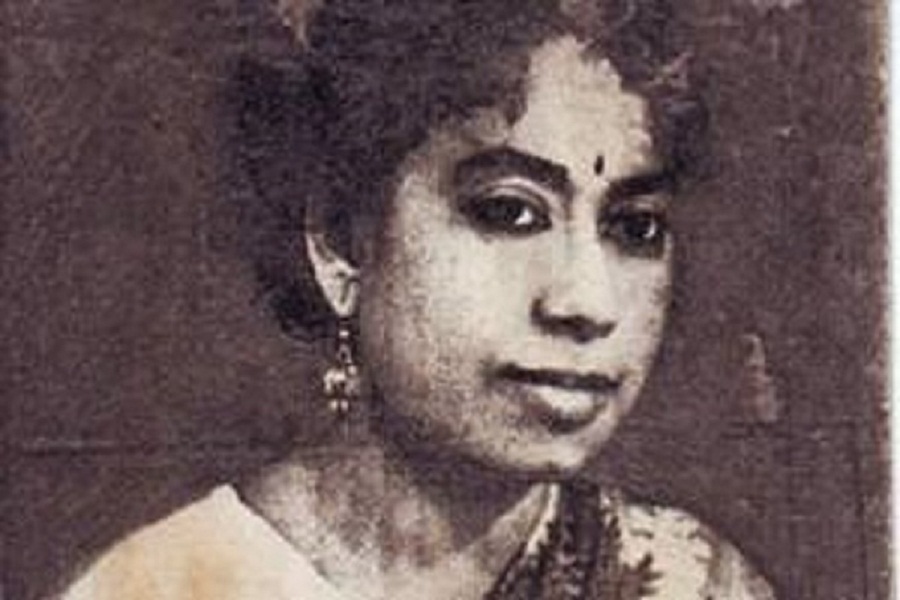
Published :
Updated :

“Eat with your uncle, Sumon. I’ll be right back.”
These are the last words Selina Parvin had said to her 8-year-old son before the Pakistanis took her from her home. The next time her family would see her would be in a mass grave, recognizable only due to the white scarf wrapped around her and the white socks on her feet.
Martyred journalist Selina Parvin was born 93 years ago today, on 31 March 1931, in the village of Kalyannagar, which then fell under the Noakhali district. Since both her parents were teachers, she grew up in an environment of cultural and literary practice, wherein she developed artistic and musical skills at a young age. However, she was married off without her consent at the tender age of twelve.
Defying society, she broke off the marriage in 1948 and started teaching despite much social backlash. She worked many jobs in the following years, including as a matron in Begum Rokeya Hall, a teacher at Azimpur Baby Home and a brief job at Sir Salimullah Orphanage.
During this time, she got married – this time by her own choice – to a political worker named Muhammad Jahangir in 1962. Her close ties to figures such as Prof. Munir Chowdhury and Shahidullah Kaiser inclined her towards socialism. She became politically active, attending various seminars and meetings and participating in the Mass Uprising of ’69.
Selina Parvin entered the world of journalism in 1966 as a secretary to Begum Nur Jahan, editor of the weekly Begum. She joined the weekly Lolona in ’67, where she did all kinds of work, including fundraising and collecting advertisements. She contributed regularly to prominent newspapers of the time including Purbachal, Azad, Daily Pakistan, Sangbad, Begum and Ittefaq.
She started her own paper in 1969 by the name of Shilalipi. Since the beginning, Shilalipi heavily supported the cause of Bengali nationalism, and almost every prominent intellectual of East Pakistan wrote for the paper. Selina Parvin remained in Dhaka even after the liberation war began in 1971 when the authorities blacklisted Shilalipi for being anti-Pakistan.
During this time, she donated all the profits from Shilalipi to the freedom fighters – they would go to her home regularly at midnight to receive the medicine, funds, clothing and food she had allocated for them.
In one issue of her paper, she published pro-independence poems by Sikander Abu Jafar and Shamsur Rahman. The military government banned that issue and ordered her to seek pardon. She had refused; it would be her last act of defiance.
On 13 December 1971, when the Pakistani occupation was near its end, a Fiat microbus and a lorry appeared in front of her home at 115th New Circular Rd, where she lived with her brother, mother and 8-year-old son. Several men in plain clothes with covered faces entered her home. Despite her family’s pleas, she was taken away. She would be right back, she had assured her crying son.
Delwar Hossain, the only survivor among the captives who had been with Selina Parvin, describes hearing a woman’s screams silenced by a bayonet charge.
She was found in a mass grave in Rayerbazar on 18 December, two days after the Pakistani military’s surrender, with two bayonet wounds – one through the eye and one through the stomach.
The occupiers had killed her, yet even in death, they couldn’t silence her legacy. Her name is enshrined in the list of martyred journalists at the National Press Club, a residential hall has been erected in the University of Dhaka in her name, and the road where she was abducted has been named Selina Parvin Road.
However, no tangible commemoration can capture the spirit of Selina Parvin, who lived in defiance of society and died in defiance of the military government – a Bangladeshi national hero through and through.
raheenayab2001@hotmail.com


 For all latest news, follow The Financial Express Google News channel.
For all latest news, follow The Financial Express Google News channel.